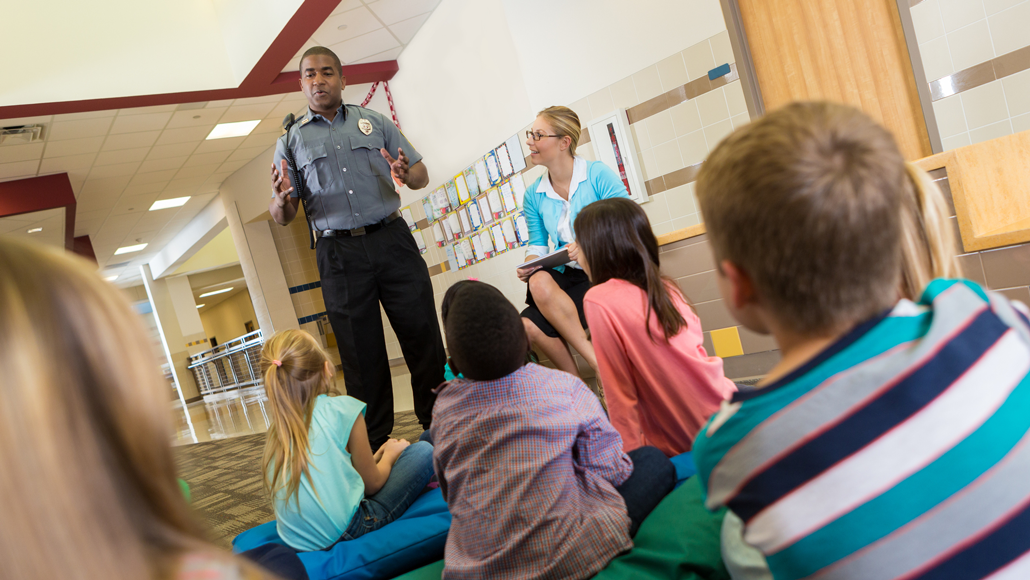Questions for ‘Do school-shooter drills hurt students more than they help?’

Schools often invite police officers in to make students more comfortable with them in case of an emergency. Now many schools have added drills that make children practice lockdowns or strategies to run, hide or fight.
SDI Productions/E+/Getty Images
Share this:
- Share via email (Opens in new window) Email
- Click to share on Facebook (Opens in new window) Facebook
- Click to share on X (Opens in new window) X
- Click to share on Pinterest (Opens in new window) Pinterest
- Click to share on Reddit (Opens in new window) Reddit
- Share to Google Classroom (Opens in new window) Google Classroom
- Click to print (Opens in new window) Print
To accompany feature “Do school-shooter drills hurt students more than they help?”
SCIENCE
Before Reading:
1. Most U.S. schools conduct drills on what to do if some intruder enters the premises with a gun. What do you know about such drills? What is your experience with them?
2. How does participation in such drills make you feel — and why? If you don’t have school-shooter drills, would you welcome them or not? Explain why.
During Reading:
1. What was “Aalayah Eastmond’s experience with school-shooter drills? And how did it help when she found her school under attack.
2. How many U.S. school shootings have occurred since the 1999 Columbine tragedy?
3. What is the risk (the odds) that a U.S. student will be the victim of a school homicide? How does that compare, numerically, to other causes of death in children and teens?
4. What is Safe and Sound Schools? Who developed it and why?
5. What did Cheryl Lero Jonson’s team find when they compared lockdown scenarios against ones where participants tried to run, hide or fight gun-toting intruders?
6. How does that compare with what Purdue researchers concluded after running some similar scenarios for the Columbine attack using a computer model?
7. What is Kenneth Trump’s view on the benefits of school-shooter drills? Why does Aalayah Eastmond challenge his conclusion?
8. What did the research by Amanda Nickerson conclude after surveying 4th– through 6th-grade students who had participated in school-shooter drills?
9. What are “sensorial” shooter drills? Why does Melissa Reeves of Winthrop University argue against schools using them?
10. Why does Stephen Brock of California State University, Sacramento also caution about such drills? He identifies some types of students who might respond especially poorly to such drills. Give two examples.
After Reading:
1. If your school conducts shooter drills, what do they consist of and have they made you feel safer or more anxious? Explain why. Did things you read in this story change your attitudes about these drills? If so, what types of data or descriptions impacted you most and why?
2. Many people are far more frightened by the idea of a school shooting than of being killed in a car accident. Why do you think that is? (Hint: How do the conditions differ? How do the risks of who might be involved differ? How might the issue of control, intent or number of potential victims play into these fears?)
3. If your school offers shooter drills, would you (or did you ever) opt out of taking part? If you knew that you could, would you decide not to take part? Explain your reasoning.
4. Collaborate in groups of two or three classmates and come up with some ideas about how you might develop new programs at your school to deal with major safety issues, from school shootings to natural disasters (such as wildfires, earthquakes and extreme storms). Put together a poster describing what students and school staff might do.